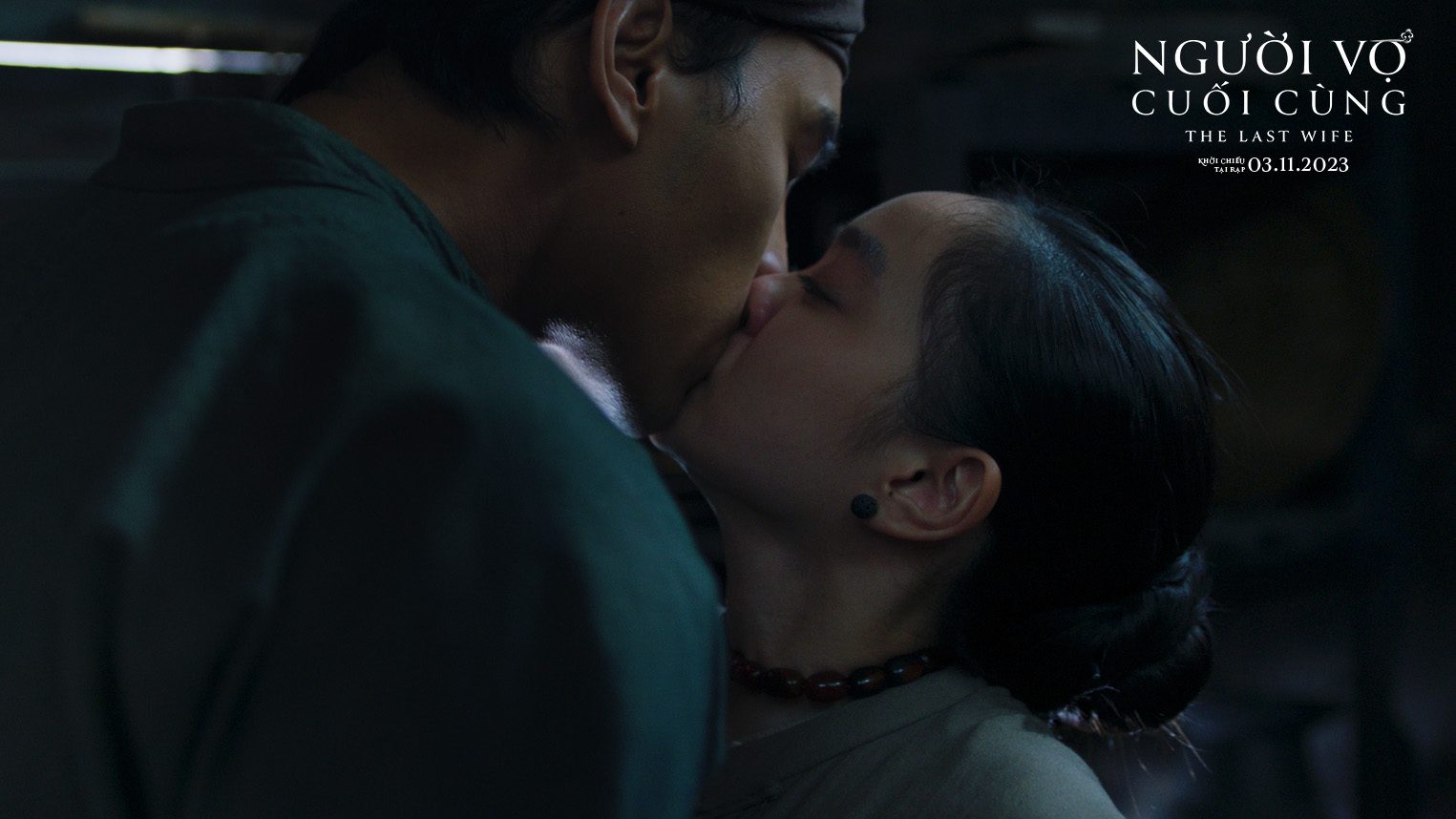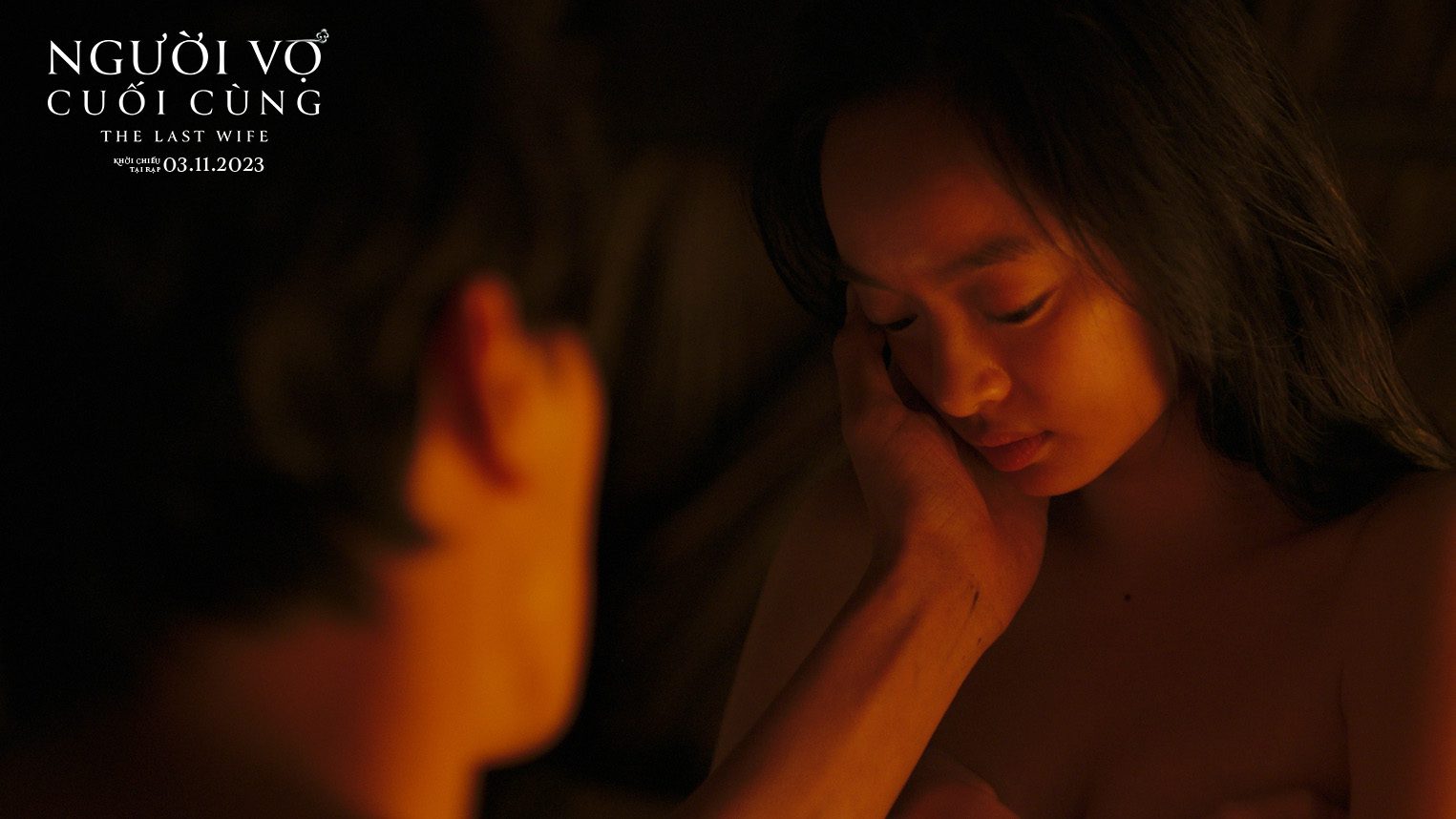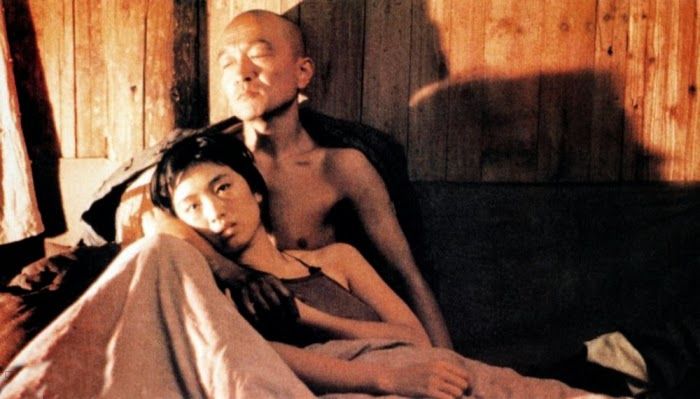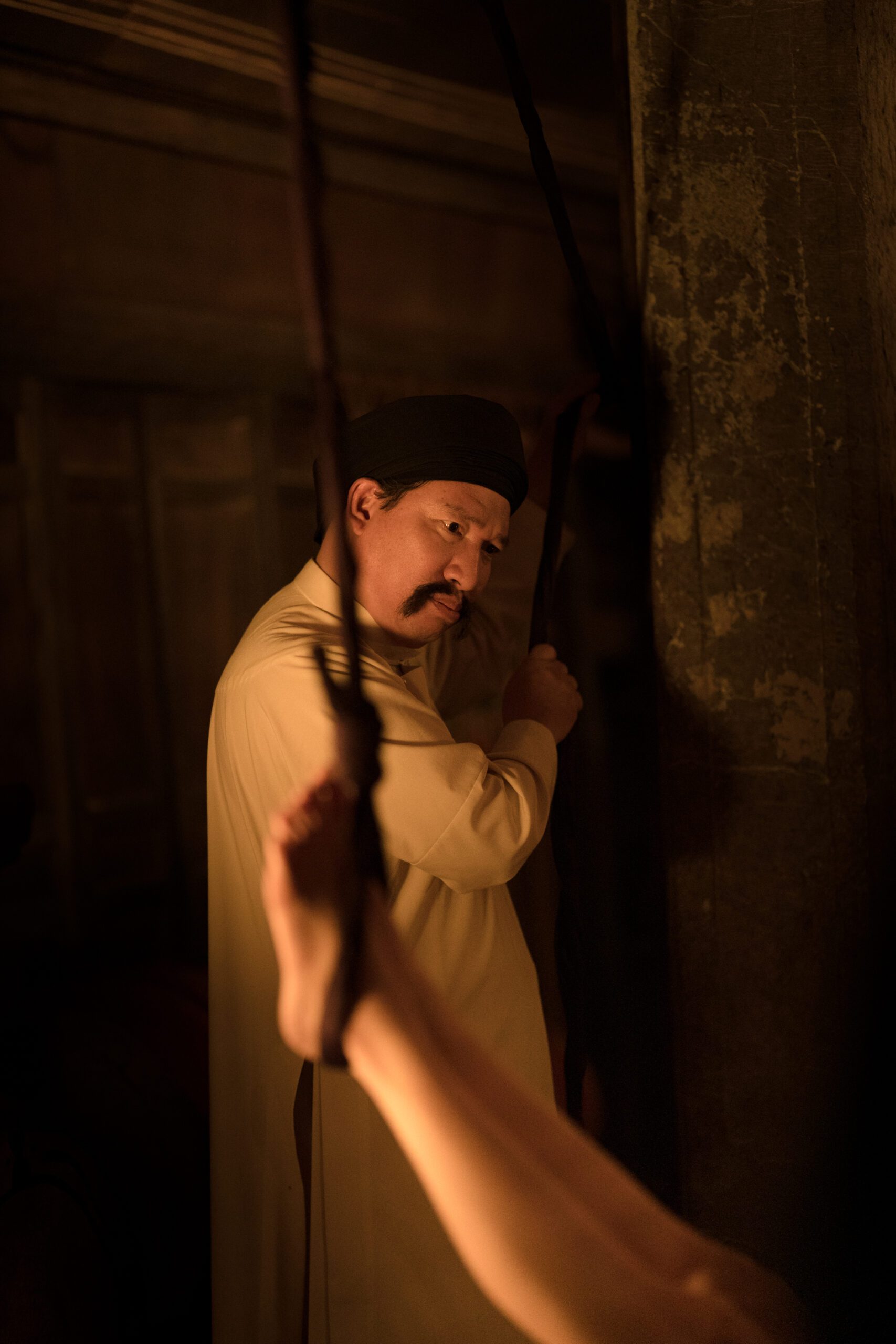The Last Love is one of the hottest films in Victor Vu’s career up to now. Moreover, the lead actress is Kaity Nguyen, one of the most beautiful and talented young stars in the Vietnamese film industry. This has made the film a focal point of attention. However, the way the filmmaker, born in 1975, portrays intimate scenes lacks depth and fails to evoke genuine emotions.
Are the intimate scenes in The Last Love really necessary?
The Last Love revolves around Linh (Kaity Nguyen), a poor girl of ethnic descent who works as a secretary for the District Chairman, Duc Trang (NSUT Quang Thang), to support her father. She is responsible for having a son, yet for seven long years, Linh has only given birth to a daughter. This situation reflects her life, which is not much different from the hardships faced by others in her household.
Everything changes when Linh meets her love interest, Nhan (Thuan Nguyen), during a chance encounter. The emotional turmoil of a budding romance soon collides with the pain of being subjected to the harsh realities of life, especially when she is forced to navigate the expectations of the district office, which quickly draws her into Nhan’s arms. As their relationship deepens, both make a bold decision that could change everything.
Victor Vu once shared in an interview: “I can say this is the first time I see such scenes that are truly necessary in my films. All intimate scenes are designed to build the profound feelings of the characters Linh and Nhan, who live in a society where love is still not acknowledged. The nuances are like choosing to be rich, suppressing every emotion and longing for happiness behind the rigid walls of tradition.”
Agreeing with what the director said, the intimate scenes in The Last Love are indeed essential. They not only reflect Linh’s suppressed desire for love but also play a significant role in developing her psychological state. The contrast in emotions displayed in the intimate scenes between Linh and Nhan and Duc Trang is partly justified by the actions that follow her.
Lack of emotional depth and technicality
The intimate scenes in The Last Love are necessary, yet Victor Vu constructs them in such a way that they lack emotional depth. While they are supposed to be intimate moments, Linh and Nhan have been apart for seven years. Moreover, Linh’s role is that of a secretary. However, upon meeting Nhan one morning at work, she quickly runs into his embrace.
After a few moments of hesitation, both of them leap into each other’s arms like two lost souls. However, the scenes unfold too quickly and awkwardly. The film could have depicted more of Linh’s pain and longing for love. Additionally, she has to struggle with her own emotions while Tam Tong and Tu Duc still maintain their roles in the male-dominated period.
However, the intimate moments between Linh and Nhan unfold with remarkable simplicity. Instead of relying on intricate techniques, director Victor Vu chooses to present them in a straightforward manner, akin to many independent films that utilize intimate scenes to attract viewers. The character’s emotional growth is depicted quite sensitively and is revisited multiple times.
In addition to the shortcomings, the rapid pace of the intimate scenes also makes the character’s psychology feel more fragile. The relationship between Linh and Nhan is currently burgeoning. In reality, they would not dare to “let loose” as the film depicts; otherwise, both families would face severe consequences. The fact that The Last Love ties up its loose ends, evokes emotions but lacks artistic techniques and subtlety.
Unconventional imagery is skillfully navigated
Crazy Love (1990) debuted 33 years ago and shares similar thematic content with The Last Love. The film also focuses on a poor girl who experiences a marriage that is not as expected. Crazy Love (Cuong Loi) becomes a servant for Mr. Duong Kim San (Ly Vu). She often faces hardships due to her inability to have a son. The prolonged emotional turmoil leads Crazy Love to pursue an extramarital affair with Duong Thien Thanh (Ly Bao Dien), a young man working in Duong Kim San’s shop. Both stories depict the longing for love that leads to intimate scenes that are skillfully crafted.
Right from the beginning, the romantic moments between Crazy Love and Duong Kim San are conveyed through subtle dialogues, screams, and pleas that resonate from Mr. Duong’s office, which Duong Thien Thanh overhears. There’s no need for explicit intimate scenes; the audience can still perceive how Crazy Love struggles with societal norms and how her own heart aches every time she returns home. Subsequently, the romantic scenes between Crazy Love and Duong Thien Thanh carry a sense of intimacy and continuity. The character’s emotions intertwine with the longing expressions of Cuong Loi, creating a striking visual imagery.
Furthermore, the scenes clearly highlight the tragic elements of the characters, closely related to the service industry. This is not only the main backdrop of the film but also a significant constraint that the poor girl in that era cannot escape from. The relationship between Crazy Love and Thien Thanh will always have to rise above the surrounding walls of the shop. The unique approach of director Truong Nghe Muu has made the scenes deeply resonate with the audience. There is no need for the actors to show off their bodies excessively; the emotions remain profound and impactful.
In conclusion, the intimate scenes in The Last Love do have some redeeming qualities. Victor Vu effectively contrasts the intimacy between Linh with the District Chairman Duc Trang and Nhan. While Duc Trang only knows how to “satisfy his needs” without caring for Linh’s feelings, Nhan instead shows tenderness and understanding, allowing her to express her genuine emotions. Yet these are merely the basic details that any work has to contain.
Compared to the intimate scenes of the Crazy Love, The Last Love also possesses a promising intimate imagery, skillfully maneuvering through the narrative. However, Victor Vu does not delve deeply into this detail. Overall, through the intimate imagery, The Last Love could evoke significant feelings in Linh’s life at the district chairman’s home, but the pain is ultimately overshadowed by the mental barriers she faces. Even when she encounters Nhan, she cannot fully be herself, always worrying about her emotional vulnerability that might be revealed. Thus, the decisions both make rely more on legality and emotional depth.
In summary, the intimate scenes in The Last Love primarily focus on a brief period at the film’s beginning with a tense atmosphere that leaves viewers feeling overwhelmed. The lack of buildup in the intimate scenes contributes to the overall feeling of emptiness, turning the essential role that Victor Vu mentions into mere aesthetics.
Intimate scenes in The Last Love can elevate the work and make viewers reflect even after exiting the theater, provided Victor Vu executes them with artistic intent. However, they ultimately seem superficial and lack depth, making the final impression on the audience feel shallow and devoid of the emotional nuances this film could have explored.

























